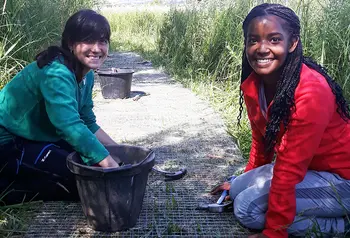Investment in digitisation: what the heritage sector wants

We define digitisation as “a combination of releasing digital data about collections and creating digital representations of analogue or physical objects”. We developed this definition in collaboration with the Department for Culture, Media and Sport (DCMS) Digitisation Taskforce.
Our hybrid Digitisation Leadership Event attracted representatives from 83 UK organisations to discuss strategic approaches to investing in the digital preservation of heritage.
It featured three panel sessions and voting on the points raised by each panel. Participants were also invited to share additional priorities via an online feedback tool.
This was a hugely positive event... which will inform how we support organisations going forward.
Josie Fraser, Head of Digital Policy at The National Lottery Heritage Fund
The event coincided with the release last month of our two new resources aimed at supporting organisations to design high quality projects on a budget – the digitisation project planner and guide to low-cost digitisation projects.
What you told us
Priorities for governments
The top three priorities as voted by attendees:
- discoverability: cataloguing and metadata
- perpetuity: long term plans for durable preservation
- removing barriers for access and innovation
Valerie Johnson, from the National Archives and chair of the DCMS Digitisation Taskforce, who presented on digital discoverability at the event, said: "I was so pleased to see the importance of cataloguing and metadata shine through. The metadata that accompanies digitisation is the key that unlocks the content for all the amazing opportunities that come with digitisation: searching, linking, comparing, analysing, using in different ways – the list is endless.”
Priorities for funders
The top three priorities as voted by attendees:
- shared digital infrastructures
- community-led and designed digitisation
- open source approaches for funded initiatives
David Saywell, from Art UK, who spoke about shared digital infrastructures at the event, said: “Organisations of every size want to do more in this space. However, behind [this vote] lies the recognition that being part of a shared platform like Art UK is a much more effective way for small, medium and hard-pressed art collections to operate and thrive in this digital world.”
Priorities for small and volunteer-led organisations
The top three priorities as voted by attendees:
- training volunteers
- finding partners with shared values
- building partnerships with technical partners
Rheinallt Ffoster-Jones, from the National Library of Wales, who spoke about working with volunteers at the event, said: “The voting [for] the training volunteers priority reflects not only the value of digitisation in the culture heritage sector, but also the importance of investing in people as a key resource to drive these efforts forward."
Broader priorities
Other topics that came up consistently across all panels and in general discussions included concerns about environmental sustainability, staff capacity and overreliance on volunteers.
Joined up support
Josie Fraser, our Head of Digital Policy, said: “This was a hugely positive event, a genuinely sector-wide conversation about priorities and opportunities to get the best possible value from UK digitisation investment, which will inform how we support organisations going forward.
“We are also working in partnership with DCMS’s Digitisation Taskforce and the Towards a National Collection research programme to ensure the UK’s approach to funding digitisation is joined up.
“Our new Heritage 2033 investment principles and commitment to making digital resources available, accessible and open will help ensure the projects we fund are discoverable by current and future generations.”


